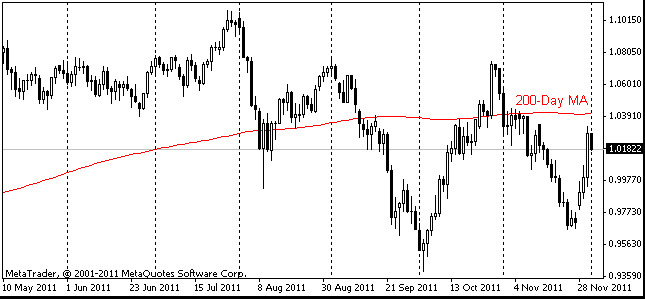EUR/usd
The Spanish government has received the 45% share in Bankia, the third largest banking group in the country. 4.47 bln of the governmental aid will be converted into equities, thus allowing the group to build up its capital and confirm its solvency. The talks concerning the necessity of this step put pressure on the stock exchanges on Wednesday and also contributed to the euro sales. Even the rhetoric of Weidmann, president of Deutsche Bundesbank, hasn't helped the euro. Weidmann keeps persisting in his opinion that the current measures, proposed by the ECB, are temporary and that the Bank shouldn't be required to take any further steps to maintain the stability. Yesterday the single currency rewrote the four-month low, having fallen down to 1.2910. And today the pair hasn't found any sound reason to bounce up yet and is trading around 1.2950. Technically it looks as though the common currency had broken through the bottom, which it was bouncing off for the preceding three months. The situation similar to this happened a bit earlier to the aussie and there the breakdown proved to be real. With the single currency it's a bit different as there are more factors to consider, so there are still those who believe that the current breakdown is false and that the pair has the potential to grow. It is quite possible, especially if we take into account the fact that over the recent three days the March statistics for Germany have come in beyond expectations. On Monday it was the release of Factory Order data (+2,2% m/m), on Tuesday – of Industrial Production figures(+2,8% m/m) and on Wednesday – of Trade Balance statistics (13,7bln), which proved to be higher-than-expected against the growth of both imports and exports. Euro-bulls feel more and more confident that, having shown fairly good growth in 1Q, Germany will evade falling into recession and will even manage to pull up some other countries in the region in the coming months.

GBP/USD
This day is very important for the sterling as the Bank of England will announce its decision concerning the interest rate and asset purchase programme. Most market participants suppose that the Bank will take a break and won't extend its QE programme. However, we believe that it would be reckless now. Leaving aside the fact that the first official estimate has indicated the second consecutive month of economic slowdown, the British currency is rather high against the euro now, which also hampers the competitiveness of the country's exports. Since the British have decided to refresh the memory about their glorious industrial background, they won't do now without the support of the currency. Besides, judging by the preliminary indicators of price activity, the inflationary pressure in the country is on the wane now. In the coming months the British retailers will have a great opportunity to profit on the sales volume as London will host the Summer Olympics 2012. So what they need to do now is not to scare away the potential buyers by the high exchange rate.

USD/JPY
The dollar/yen keeps rewriting its lows. Contrary to our expectations, the pair hasn't stopped falling after reaching the 80 level. Against strong risk-aversion the Japanese currency again looks attractive as investors prefer to run for liquidity in May. Though the impulse for the decline seems to be escessive, the chance that the drop will keep right down to 79.10 cannot be excluded.

AUD/USD
Finally good news is coming from Australia. The country's employment has grown again. Of course, it's not very favourable that the increase is accounted for only by the part time employment, but still it's better than expected. The market analysts, who didn't expect any good news from Down Under, forecasted a 5.3% growth of unemployment and a 5K decrease in the employment rate. However, the employment has increased by 15.5K and the unemployment rate has fallen down to its annual low of 4.9%. Unfortunately good news ends here. The number of fulltime employees has shrunk by 10.5K after the 10.6K growth a month earlier. Moreover, the fall in unemployment has occurred due to the decrease in participation rate. The news, positive at first sight, has given the correction impulse to the Aussie, but will hardly manage to make any significant change in its dynamics.
